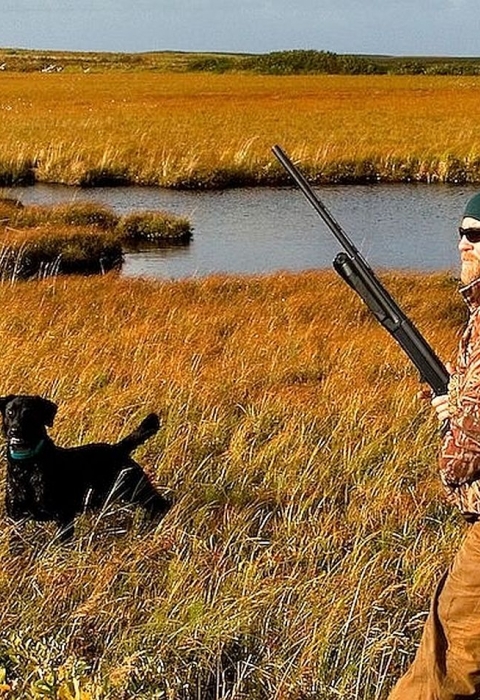Tips for Hunters and Non-Hunters
Hunting is one of the priority public uses of national wildlife refuges. The others are fishing, wildlife viewing, photography, environmental education and interpretation. Refuges aim to provide quality outdoor recreation experiences for all visitors.
For the enjoyment of long-time hunters, new hunters and non-hunters alike, it is important that all visitors share refuge lands and waters responsibly.
Tips for Hunters
- Get safe. Get certified. Check your state's fish and wildlife agency for courses.
- Stay safe on and off the ground. Learn more about tree stand safety.
- Ensure pet safety. Be sure of your target.
- Steer clear of big refuge events. If there is a major non-hunting event taking place on the refuge, plan around it.
- Stay in designated hunt areas. Do not go into areas heavily used by non-hunters.
- Be courteous. Avoid conflict.
Tips for Non-Hunters
- Identify hunting seasons and lands open to hunting. Learn where and when hunting is taking place. Plan your recreation activities based on this information. Stay out of designated hunt areas.
- Stay on designated trails. Trails are designed to improve the safety of public users and to protect sensitive habitats. Enjoying recreational activities only on designated trails will reduce the likelihood of your entering designated hunt areas.
- Wear bright clothing (like blaze orange). Make yourself easily visible. Choose colors that stand out, like bright, fluorescent red, orange or green. Avoid earth-toned and animal-colored clothing.
- Don’t forget to protect your dog, too. On refuges where pets are permitted, tie a brightly-colored bandana or swath of fabric around your dog’s neck. Or purchase a blaze orange dog vest, available from many sporting goods outfitters. Follow appropriate leash requirements.
- Make noise. Alert hunters to your presence by whistling, singing or carrying on a conversation as you walk.
- Be courteous. Once a hunter is aware of your presence, don’t make unnecessary noise that disturbs wildlife. Avoid conflict.
- Make yourself known. If you hear shooting, raise your voice and let hunters know you are in the vicinity.






